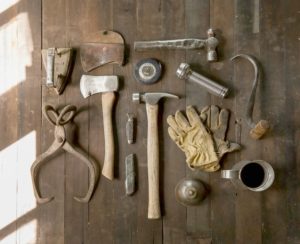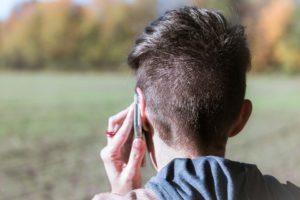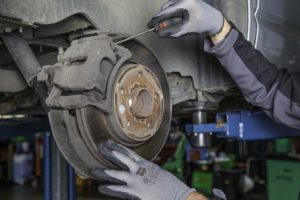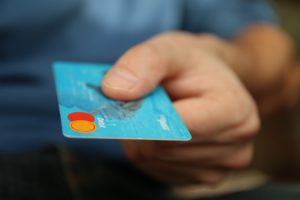We have previously discussed old fashioned skills that everyone should have, and we even touched on some homesteading skills you can work on during the winter, but there is an extremely long list of skills to be learned or improved on while you are waiting for your homesteading dream to become a reality. The skills we have already discussed include breadmaking, cooking from scratch, indoor/container gardening, canning and preserving, sewing, herbal remedies, and DIY supplies. But the list doesn’t end there!
Here are some homesteading skills that can be started while you’re stuck in a city or a suburb, waiting for your dream homestead to make its way into your life.
1) How to Make and Use Compost
While you are working on your indoor or container gardening, it definitely isn’t a bad idea to start experimenting with compost. If you don’t have a yard to support a compost pile, you can start with an indoor compost bin— just make sure to buy or make one that holds in odor. Starting a compost bin will also help you be less wasteful, as you can throw egg shells, fruit peels, veggie scraps, and a number of other things in here!
You can find more information on how to start composting here.
2) How to Use Basic Tools
Living a self-sufficient and DIY lifestyle means you are definitely going to be using tools, probably pretty regularly. While a lot of tools are simple and self-explanatory (I swear I don’t think you guys are dumb) some are more difficult, like a chainsaw, and can be down right dangerous if not used properly! While you can research how to use some tools, I recommend using the community as a resource for this—it’s always a good thing to learn from someone who is confident with what they’re doing.
You can find a pretty elaborate list of homesteading tools that will come into play here.
3) How to Start a Fire
While in most cases you will probably be doing your cooking in the kitchen, building a fire is a basic survival skill that everyone should have. You can also use
fires to heat your home during the winter, and wouldn’t it be satisfying to see those savings?!
You can review 3 different techniques for building a fire here.
4) Learn to Live With Less Technology
In a world with an increasing reliance on technology, it’s pretty easy to get wrapped up in it. Obviously, the internet and cell phones are good to have for many reasons and can help you with your homesteading research—but you don’t want to get too attached. Once you have your own homestead to maintain, you won’t have as much time for technology anyway, so I would consider not getting too
emotionally involved with updating your Facebook and Twitter.
5) Bartering Skills
Bartering is something that a lot of us do without even realizing it. I can think of several times that I would make an agreement with a classmate; I’ll read chapters 1-5 and answer those questions if you can cover chapters 6-10. As simple as the concept is, it plays a big part in homesteading. Most homesteaders don’t have an abundance of cash by any means, and therefore the community spends a lot of time trading. If you somehow have plenty of fresh eggs and your neighbor has too many herbs to handle, make a trade—it’s as simple as that.
You can find more tips on how to get started with bartering, and why, here.
6) How to Store Water
Water is pretty much the #1 thing needed for survival, so its important to have a backup supply. Many homesteaders have their own supply of water, such as a well, which still holds the possibility of contamination or pump failure. The amount of water you should keep handy depends on a number of things, like how many people live in your home and how much local water you have access to.
There’s additional information on how to store water here.
7) Learn Basic First Aid
Even if you weren’t an aspiring homesteader, basic first aid and CPR are skills that everyone should have—especially parents! You never know when an emergency situation can happen, and you’ll be thankful you have this knowledge.
You can find information on handling allergic reactions, asthma attacks, and more here.
8) Basic Mechanic Skills
Taking your vehicle somewhere every time it needs worked on can add up FAST. While sometimes it is necessary, there are plenty of things you can learn to take care of yourself! Start with basics like changing your oil, changing a tire, and jump starting your car, but keep in mind you can also learn how to change your own brake pads and how to change your battery. This will save you so much money in the long run, and it’s a really good skill to pass along to your children.
9) Educate Yourself
This one is really dear to me, because it’s so simple and so rewarding plus I LOVE learning! Since this is “old fashioned living” a lot of these practices have started dying over time. With that being said, the community (while small) has a lot to offer! There is an organized online community at your fingertips, so while I recommend doing a lot of your research on the web, there are also a number of books that can help you get started! You can find a great list of starter books here.
10) Get Out of Debt
This is perhaps the most important one. Homesteading is going to be a very frugal lifestyle, with not a lot of time or money to spare. The most important thing to cross of your list before diving into being a homesteader is your debt! This will give you time to build the skills we have discussed and set you up for success in your old fashioned life.
This article talks about how bringing debt into your homestead can harm you in the long run.
At this point, you should have a pretty good list of skills you can work at and improve on while you are waiting for your homesteading dream to become a reality. Remember to be patient with yourself; a lot of these things may take multiple attempts to get right and it can be frustrating. Keep in mind that while you might fail sometimes, resiliency is key in homesteading—so brush yourself off and try again!







VERY sound advice for all. (even if they are not hoping to homestead) So many of these skills/knowledge have been lost.
Great post.
Gill
Thanks, Gill! 🙂
You are absolutely right, this can definitely help out people who aren’t trying to homestead as well! We should all focus a little bit more on bettering ourselves and a little less on the stuff around us!
Mary G